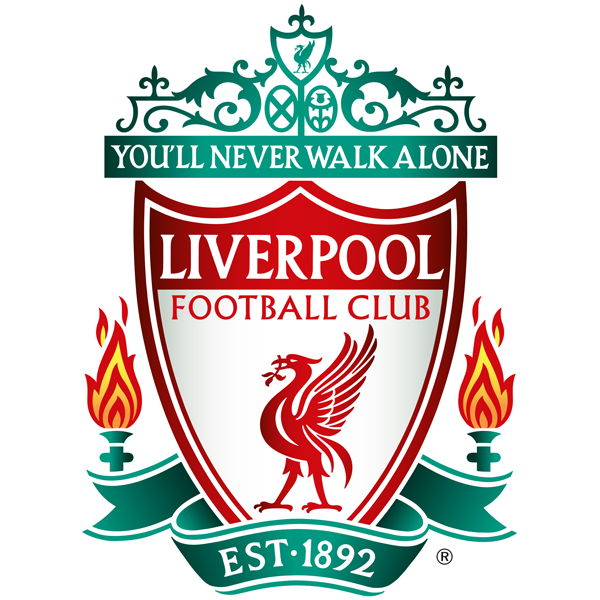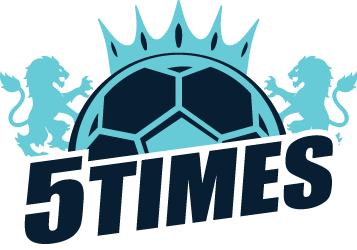
Official Website: www.liverpoolfc.com
Liverpool FC – the historical moments and trophies of one of the world’s most supported clubs
When you think of Liverpool, you’d most likely connect it with one of the biggest football clubs in the world – Liverpool’s own Reds, and their anthem “You’ll never walk alone”. Since their founding in 1892, it’s become the most successful club in British sports history, with hundreds of European trophies in their collection.
These consist of the six league titles and three European titles – UEFA ChampionsLeague and UEFA Europa League; the UEFA Super Cup four times, and the FIFA Club World Cup once. Although being one of the biggest clubs in the world, with over 200 supporting fan clubs in at least 50 countries, their rich history also comes with two scandals to their name – the Heisel and Hillsborough disasters.
A rich club history
After the Everton FC club moved over to Goodison Park in 1892, then-president of the club, John Houlding, was given rights to the Anfield stadium, but found that there was no existing team to play and call Anfield its’ “home”. Houlding was a quick thinker, and soon after decided that the best solution was to form his own club, named after his city, which became “Liverpool FC”.
The newly found club became a member of the Football League in 1893, and the team quickly gathered popularity and success. The club was promoted to the first division, after only playing one season in the second division of English football. The club quickly established itself as one of England’s top clubs, winning many titles including the League title in 1901, 1906, 1922, and 1923.
On September 1, 1892, Liverpool played their first match, a pre-season friendly against Rotherham Town, which they won 7-1. The squad against Rotherham was entirely made up of Scottish players – players from Scotland who came to play in England were known as Scotch Professors back then.
Manager John McKenna had recruited the players after a scouting trip to Scotland – so they became known as the “team of Macs”. After winning in its first season, it was promoted to the Football League Second Division for the 1893-94 season. Tom Watson was appointed manager after the club was promoted to the First Division in 1896. In 1900-01, he led Liverpool to its first league title, which he later won.
Liverpool FC Stadium: Anfield
Since the club’s inception in 1892, Liverpool Football Club has called Anfield their home turf ever since the stadium was built. Yet, the Reds were not the first club to play at the venue before others followed in their footsteps. Everton played their home games at Anfield for the final eight years of their tenancy before moving on.
The Kop was redesigned in 1928 to accommodate 30,000 standing fans, and it gained a reputation for being one of the most rowdy and noisy football stands in the country almost immediately after it was completed. With the start of the 2016–2017 season, the redevelopment of the Main Stand, which included the addition of 8,000 seats to the venue’s capacity, was finally finished.
The “home of football” has maintained its twin status as both a traditional community hub and an iconic pitch of global fame despite its location approximately three kilometres north of the city centre and nestled among the red-brick buildings of the Anfield neighbourhood.
The earliest Red superstar
Alex Raisbeck was commanding on the field and carried himself with a military air, which was not surprising given that he was one of seven brothers who became soldiers or footballers. His form drew interest from other clubs, and he signed with Liverpool in May 1898. He quickly established himself in the first team and was appointed club captain at the age of 21 after two seasons, leading the team to their first league title in 1900-01.
Liverpool FC were relegated in 1904, and Raisbeck canceled his plans to leave the club in order to help them win promotion back to the First Division on the first try, winning the Second Division title in 1905. Only a few people in Liverpool history have commanded such respect and admiration, and he was without a doubt the team’s first superstar.
The reigning of Bill Shankly
The club, despite being hugely supported and popular back then, were not particularly consistent in the post-World War II era of English football. The 1946-47 season was Liverpool F.C.’s 55th season, and the club won the title by one point over Manchester United and Wolverhampton Wanderers. After losing to Burnley in the FA Cup Semi-Finals, their chances of completing the double were over.
By 1947, the football club had won its’ fourth competition league title, but sadly fell into a hole that resulted in their fall to the Second Division in 1954. However, things improved after Liverpool legend Bill Shankly was hired as manager. Shankly’s first order, in order to improve the situation at the club, was to fire and change the entire first team squad.
Following that, he transformed the storage room into the infamous “Boot Room,” which became the coaches’ secret meeting place for the next thirty years. Shankly established a Liverpool tradition, which Paisley and Fagan, the assistant coaches continued, of holding daily meetings in there to discuss strategy, tactics, training, and players. Shankly’s unorthodox and strict work ethic and methods unseen results soon after. By him taking the reins, Liverpool FC won the League two years after returning to the First Division in 1962.
During the 1963-64 era, Emlyn Hughes, was one of the most cheerful Liverpool players ever, fiercely strong and with extraordinary stamina. Shankly saw Hughes play in one of Blackpool’s first games and decided to offer £25,000 for him.
Although Blackpool were hesitant to sell him, manager Ron Suart promised Liverpool first refusal if Emlyn became available. Every Sunday morning, Shankly called Hughes to tell him he’d be a Liverpool player soon. In February 1967,
Shankly eventually managed to get Hughes to his football team but for a much higher fee of £65,000. Hughes recalls the signing as the most significant day of his career.
During Shankly’s time as manager at the club, Liverpool played some of their strongest matches, especially between 1972–73. They managed to add to their collection two more League titles, in 1966 and 1973, two FA Cups in 1965 and 1974, and their first European trophy – the 1973 UEFA Cup. Shankly resigned from his position in 1974 due to a need for a vacation, leaving the club in the hands of his assistant, Bob Paisley.
Bill Shankly published his autobiography in 2009, where he wrote all about his coaching career. Long before Anfield, he stated that that he had long planned a career as a football manager. His approach to coaching was formed from all types of coaching systems. He had always had complete faith in his ability and in himself to lead a team.
According to Shankly, a coach does the hard work, and the rest is just a matter of waiting for an opportunity to present itself. He stated, that he always applied a basic formula when spotting a player, which was that the player must have both ability and courage. Other characteristics included physical fitness and a willingness to learn and put in the maximum amount of work and effort on the pitch.
Adding more trophies to the collection under Bob Paisley
After the leave of Bill Shankly in 1974, the football club was taken over by the new manager, Bob Paisley. He was initially hesitant to take on the role of head coach, but despite his worries, he became a huge success. Surprisingly, the change in management had little effect on Liverpool’s dominance and style of play.
Liverpool FC were a remarkably consistent team under Paisley. Under his reign, the Reds won one UEFA Cup and three European Cups. Following a second-place finish in 1974-75, Liverpool won the league title and the UEFA Cup in 1976. This was the start of Liverpool’s dominance of English and European football, as the club went on to become champions six times – finishing second twice – as well as winning three League Cups, one UEFA Cup, one UEFA Super Cup and six Charity Shields.
With him as manager, Liverpool never finished lower than second in the league, with the exception of a fifth-place finish in 1981. Paisley’s team went 63 league games unbeaten at Anfield between 1978 and 1981, a club record that was only broken by Jürgen Klopp’s Liverpool team in November 2020.
Paisley, who won 20 major awards during his time as Liverpool manager, is still the one of most successful managers, and the most successful English manager of all time. He won awards at a rate of 2.2 per season, second only to Pep Guardiola.
Paisley was the only manager in history to lead three European Cup-winning teams until Carlo Ancelotti and Zinedine Zidane did so in 2014 and 2018, respectively. In addition, he received an unprecedented six Manager of the Year Awards.
Paisley resigned from his position at Liverpool FC at the end of the 1982-83 season, after being at the club in various positions for 44 years. He was replaced by Joe Fagan, who led Liverpool to their fourth European Cup victory. Paisley served as an informal consultant and advisor to Kenny Dalglish for two years following his appointment as player-manager in 1985, before becoming a club director.
The Heysel and Hillsborough disasters
When Paisley retired in 1983, Joe Fagan took over as his replacement. Liverpool became the first English team to win three trophies in a season when they won the League, League Cup, and European Cup in Fagan’s first campaign. In 1985, in the final of the European Cup at the Heysel Stadium, a match between Liverpool and Juventus caused fans to become ecstatic.
Before the game began, Juventus supporters were charged by Liverpool supporters who had climbed over the fence separating the two groups of supporters. Liverpool FC fans caused the death of 39 fans, mostly Italians supporting Juventus, when the weight of the crowd caused a wall to collapse.
The Heysel stadium disaster came to be the name given to the incident. Liverpool lost to Juventus by a score of 1-0 despite the managers of both teams’ protests. Due to the tragedy, Liverpool was banned, from European championships. English clubs were banned from competing in any European competition, so it’s largely regarded as one of the first football tragedies in English history.
Just before the Heysel accident, Joe Fagan announced his retirement, and Kenny Dalglish was named player-manager, who took over Fagan’s reign. With Fagan in charge, the club won two FA Cups, three more league championships, and a League and Cup “Double” in the 1985–86 season, the second tragedy – the Hillsborough accident, overshadowed Liverpool’s success.
On April 15, 1989, at Hillsborough Stadium in Sheffield, during an FA Cup semi-final between Liverpool and Nottingham Forest, hundreds of the Reds’ fans were crushed against perimeter fencing. Tragedy struck, and the disaster claimed the lives of 94 fans at the scene, with the 95th victim passing away from his injuries in the hospital four days later. The the 96th died almost four years later, without regaining consciousness, and the 97th victim, Andrew Devine, passed away from disaster-related injuries in 2021.
The team’s change of management
The subsequent Taylor Report, which was passed after the accidents, paved the way for legislation mandating all-seat stadiums for top-division teams. According to the report, poor police control led to overcrowding, which was the primary cause of the disaster. During the 1988–89 season, Liverpool was a part of the league season with the closest finish. Arsenal and Liverpool tied for first place on points and goal differential, but Arsenal won the championship on total goals scored when they scored the game-winning goal in the final seconds of the season.
Coach Kenny Dalglish resigned from his position in 1991, stating the Hillsborough disaster and its consequences, and was replaced by former player Graeme Souness. Under his wing, the Reds won the 1992 FA Cup Final, but their league performances deteriorated, with two consecutive sixth-place finishes, eventually leading to his dismissal in January 1994.
Souness was replaced by Roy Evans, and Liverpool FC won the Football League Cup Final in 1995. While they made some title challenges under Evans, third-place finishes in 1996 and 1998 were the best they could manage, so Gérard Houllier was appointed co-manager in 1998-99, and became sole manager in November 1998 after Evans resigned.
The 2000’s
Liverpool won a “treble” in 2001, during Houllier’s second full season at the head of the team – the FA Cup, League Cup, and UEFA Cup.During the 2001-02 season, due to health complications, the coach underwent major heart surgery, and Liverpool finished second in the Premier League, runners up after Arsenal. They won another League Cup in 2003, but failed to challenge for the title in the two seasons that followed.
At the end of the 2003-04 season, Houllier’s position was taken by Rafael Bentez. They won the 2004-05 UEFA Champions League, despite finishing fifth in Bentez’s first season, defeating A.C. Milan 3-2 in a penalty shootout after the game ended 3-3. Liverpool finished third in the Premier League the following season and won the 2006 FA Cup Final, outperforming West Ham United in a penalty shootout after the game finished 3-3.
During the 2006-07 season, George Gillett and Tom Hicks, two American businessmen, obtained the club and its unpaid debts for £218.9 million. The club reached the UEFA Champions League Final again in 2007, this time against Milan, but lost 2-1.
Financial hardship and frequent changes to management
Prior to the record-breaking 2018-19 season, Liverpool finished second to Manchester United with 86 points in the 2008-09 season, its then-highest Premier League points total. Liverpool FC finished seventh in the Premier League in 2009-10 and failed to qualify for the Champions League. Bentez left by mutual agreement with the owners, and was replaced by then-Fulham manager Roy Hodgson.
At the start of the 2010-11 season, Liverpool was on the verge of bankruptcy, and the creditors petitioned the High Court to allow the club to be sold, overruling Hicks and Gillett’s wishes. The club was purchased in October 2010 by John W. Henry, owner of the Boston Red Sox and Fenway Sports Group. A poor start to the season led to Hodgson’s departure by mutual consent, with former Liverpool player and manager Kenny Dalglish taking over once again.
In the 2011-12 season, Liverpool won a record eighth League Cup and reached the FA Cup final, but finished eighth, their worst league finish in 18 years, prompting Dalglish’s dismissal. He was replaced by Brendan Rodgers, whose Liverpool team finished second behind champions Manchester City in the 2013-14 season and subsequently returned to the Champions League, scoring 101 goals, the most since the 106 scored in the 1895-96 season.
Rodgers was released from his position in October 2015, after a disappointing 2014-15 season, in which Liverpool finished sixth in the league, and unfortunately had a poor start to the following season. German manager Jürgen Klopp took over in Rogers’ position, and just in his first season, Liverpool FC reached the finals of both the Football League Cup and the UEFA Europa League, finishing runner-up in both competitions. The club finished second in the 2018-19 season with 97 points (up from 86 in the 2008-09 season), losing only one game: a points record for a non-title winning team.
Klopp’s era
Klopp’s first game at his new club, Liverpool FC, was against Tottenham Hotspur in October 2015, resulting in a 0-0 draw away from home. Klopp at his new club, took Liverpool to consecutive Champions League finals in 2018 and 2019, winning the 2019 UEFA Champions League Final 2-0 over Tottenham Hotspur.
They won the FIFA Club World Cup for the first time, defeating Flamengo of Brazil in the final 1-0. Liverpool went on to win the 2019-20 Premier League, their first title after a 30-year wait.
During the first season, the club managed to set a number of records, including winning the league with seven games remaining – the earliest any team has ever won the title, racking up a club record 99 points, and achieving a joint-record 32 wins in one of the best seasons for the club.
Klopp’s Liverpool equaled an all-time club record of 31 consecutive league matches without defeat on 30 November 2019, following a 2-1 win over Brighton & Hove Albion, dating back to 1988, when the club last lost to Manchester City on 3 January. A week later, his team broke the record with a 5-2 victory over Everton.
Klopp’s unstoppable victories
Following the Champions League group-winning victory over Red Bull Salzburg on December 10, Klopp signed a contract extension that will keep him at the club until 2024. Klopp was named Premier League Manager of the Month for November in December 2019, after winning all four league matches with Liverpool.
On December 21 2019, he led Liverpool FC to their first FIFA Club World Cup trophy, defeating Brazilian club Flamengo in the final, becoming the first English team to win the international treble of the Champions League, Super Cup, and Club World Cup. His team finished the year with a 1-0 home win over Wolverhampton.
The win extended the unbeaten home streak to 50 games and gave Klopp’s team a 13-point lead at the top of the table with a game in hand. Klopp went on to win the Premier League Manager of the Month award for December for the fourth time that season. On 11 January 2020, a 1-0 away win against Tottenham Hotspur extended the unbeaten streak to 38 league games, a club record.
On 1 February 2020, Klopp’s team defeated Southampton 4-0 at home, with 22 points clear at the top of the Premier League, the largest end-of-day lead in English top-flight history, and following second-place Manchester City’s defeat to Tottenham the following day, the largest gap ever between first and second in top-flight history.
Klopp was later named Premier League Manager of the Month for January, his fifth of the season, breaking the record for the most wins in a single season. Klopp’s side surpassed the English top-flight records for the most consecutive wins and the most consecutive home wins set by Bill Shankly’s 1972 Liverpool squad on 24 February 2020, setting a Premier League era record.
After commencing the 2021-22 season with five wins and three draws in the first eight league games, Liverpool defeated Manchester United 5-0 at Old Trafford on October 24, 2021. This was Klopp’s 200th victory in 331 games as manager of Liverpool, making him the fastest manager in the Red’s history to reach that milestone.
Jurgen signed a two-year contract extension with Liverpool on April 28, extending his stay until 2026. In his announcement to Liverpool fans, he stated that one of the main reasons for signing the contract was his wife Ulla.
On 14 May 2022, Liverpool FC won their first FA Cup since 2006, defeating Chelsea again, this time 6-5 on penalties, with Klopp becoming the first German manager to do so. Liverpool would finish second in the Premier League by one point before falling to Real Madrid in the UEFA Champions League Final in 2022, losing 1-0.
Anfield’s top players of all time
Having established itself as one of the elite clubs in European football over the years, and throughout its illustrious history, many of the world’s most talented footballers have graced the Anfield turf, but only a select few will be remembered as great. The men who made the Kop roar on European nights, who stuck by the club through thick and thin, and who brought joy to an entire city.
Even if it isn’t a common choice among Liverpool fans, Fernando Torres had a serious influence during his period on Merseyside. Despite spontaneous injuries, the Spaniard managed to score 81 goals in 142 club appearances, becoming the first Red to reach 30 goals a season in since Robbie Fowler in 1996-97.
Kenny Dalglish’s first signing as Liverpool FC manager was Steve McMahon in 1985. The rugged central midfielder wound up winning the league three times and the FA Cup twice, and his unyielding desire to win compelled former manager Bob Paisley to say: “When Steve McMahon plays well, I always think Liverpool will play well.”. He appeared in 277 games for the Reds, scoring 50 goals.
The “Boy Wonder,” as he was affectionately called by Liverpool FC fans, is still the club’s youngest-ever goalscorer. Michael Owen was able to get in behind the Wimbledon defense and strike a low shot to the keeper’s left at the age of 17 years and 143 days. He went on to score 158 goals in 297 appearances (more than one goal every other game).
“King Kenny”‘s 172 goals for Liverpool are probably best remembered for his European Cup-clinching goal in the 1978 final. Throughout the late 1970s, the lethal striking duo of Dalglish and Rush wreaked havoc across the continent and instilled fear in opponents’ eyes. When his playing days were over, Kenny Dalglish remained a devoted member of the club. From 1985 to 1991, he led the Reds to three First Division titles and one FA Cup, so he’s remembered for his service by all followers of the Reds.
The commander, a true inspiration, and warrior of an entire city. Steven Gerrard is the man every little boy aspired to be. A hometown boy, who rose through the ranks to lead his beloved club, to a Champions League title, two FA Cups, and three League Cups. During his 14 years with the first team, Gerrard has scored over 150 goals. The bearer of the legendary number 8, is without a doubt, the greatest player to ever wear a Reds jersey.
A world-wide support system
Having one of the best fan bases in the world, the global fan base includes more than 200 officially recognized Supporters Clubs in at least 50 countries. “Spirit of Shankly” is a notable band. The club takes advantage of this support through its global summer tours, which have included performances in front of 101,000 people in Michigan, the United States, and 95,000 people in Melbourne, Australia.
Fans are often referred to as Kopites, a reference to the fans who used to stand and now sit on the Kop at Anfield.
A group of fans decided to form a splinter club, A.F.C. Liverpool, in 2008 to play matches for fans who couldn’t afford to watch Premier League football.
It has drawn fans from all over the world in its 129-year history. Iconic manager Jurgen Klopp has been keeping that magic alive in recent years, and the club’s success has seen its fan base spread far beyond the city limits. International actors, singers, politicians, and others have all expressed their love, with some of the most famous celebrity supporters including Nelson Mandela, Daniel Craig, Dr Dre, LeBron James, Angelina Jolie and Lana Del Rey.
Rivalries – from the citizens to the clubs
Manchester and Liverpool were both thriving in the North West of England during the 19th century industrial revolution. Manchester was known as one of the best textile bases in the world, with some of the largest factories in the world. Liverpool, on the other hand, had a fantastic shipping port that allowed it to bring in and send out loads of goods from all over the world.
The Manchester shipping canal, on the other hand, was completed at the turn of the century. This meant that ships no longer had to stop at Liverpool ports and could instead travel directly to Manchester via the canal to deliver their textile materials. This caused a great deal of resentment in Liverpool, where local residents lost business and jobs when the ships stopped sailing.
On the football side, since their formation in the late 1800s, Manchester United and Liverpool have won an incredible 131 major trophies between them. Manchester United has 20 league titles, while Liverpool is only one behind with 19. Liverpool leads the way with six European Cups to United’s three.
The top division in England was known as the First Division before it was renamed the Premier League in 1992. During the First Division era, Liverpool dominated over United, winning 18 of their 19 titles. United were unable to keep up with their archrivals, and despite dominating throughout the 1960s under manager Matt Busby, their 1967 championship victory would be their last for 26 years.
Liverpool dominated in the 1980s, winning seven titles and two European Cups. Only once have the two teams finished first and second in the Premier League. During the 2008-2009 season, this was the case. Liverpool appeared to be on the verge of dethroning their archrivals when they began 2009 on top of the table. This was during the prime of captain Steven Gerrard and striker Fernando Torres.
However, Liverpool were unable to maintain their lead over Manchester United, and despite only losing two games all season, they were unable to retain the title.







